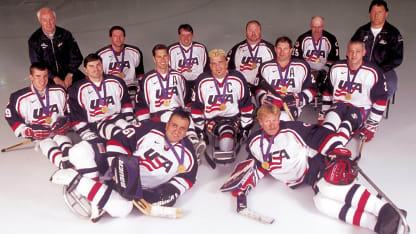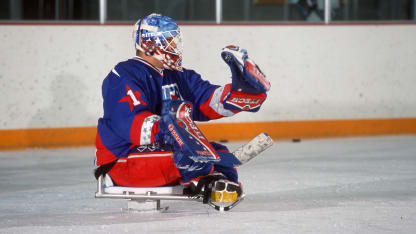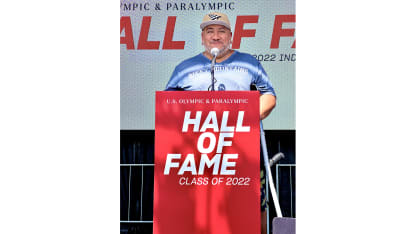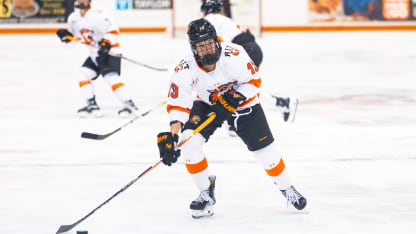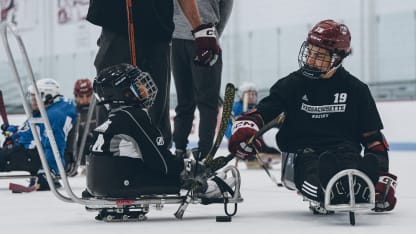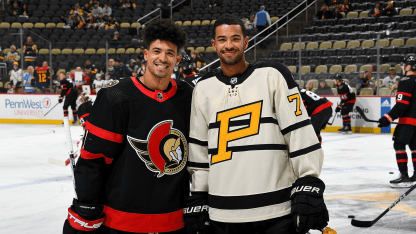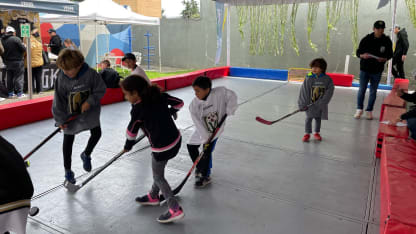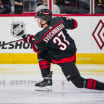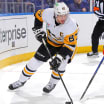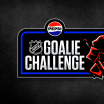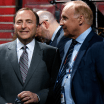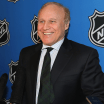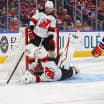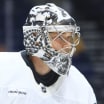The United States was a considerable underdog heading into the Games after finishing sixth of seven teams at the 1998 Paralympics in Nagano, Japan, and arriving in Salt Lake City in 2002 with 10 rookies on its 15-man roster.
The U.S. went undefeated in Salt Lake City and outscored opponents 22-3 in its first five games to start a run of excellence in international sled hockey.
The U.S. national team is 26-2-0-6-1 (W-OTW-OTL-L-T) all-time and has won six medals, including five gold medals (2002, 2010, 2014, 2018, 2022) and one bronze medal (2006).
Rick Middleton, who coached the 2002 team, said perhaps that run doesn't start without Guerra in goal.
"When a team has confidence in their goalie to save them when they're in trouble, it can work the other way when all of a sudden you think you can win any game, and I think that's what happened with us,” said Middleton, who played 14 NHL seasons for the New York Rangers and Boston Bruins from 1974-88.
"The first game was against Japan, we didn't score three goals until the third period to win the game [3-0]," Middleton said. "So he saved the first two periods. ... I think you look at the stats, we scored 22 and allowed only three. Those first three games, without Manny we wouldn't have won them. Maybe not any of them."
Guerra, 57, lives in Plymouth, Minnesota, after growing up in Chicago and living in Guadalajara, Mexico, for a time. He said he was always a good athlete, even after contracting polio as a child in 1967 that disabled his left leg.
"I just kind of limped around standing up," he said. "I used to play all kinds of sports, boot hockey, baseball, basketball."
After a back injury caused Guerra to fall into depression because it limited his activity, his then-wife implored him to do things to make his life a little easier.
"She went out and got a handicap placard for me, which I never had," he said. "Even though I was against that, she got it, and I eventually gave in."
He also gave in to the advice of the late Dr. Richard Owen, a polio survivor who was the medical director at Sister Kenny, and tried wheelchair basketball. It was Guerra's first taste of adaptive sports, and an eye-opener.
"I realized that these guys were banging," he said. "And what solidified it was when I went for a layup, one handed, I got raked across the arm. I realized it was my doctor with, like, these big Horace Grant goggles on. For me, it was, like, 'Wow, this is valid. This is cool.'"
After seeing the sled hockey tape, Guerra joined a local sled hockey team that would receive used equipment and jerseys from the Minnesota North Stars.
"I remember putting on a Kari Takko jersey," he said. "And the sticks, we didn't have access to sticks that had an appropriate blade lie. They were regular standing-up sticks. We cut those. We adapted to it."
Guerra received an invitation in 1992 to the U.S. national team trials. He competed in the 1998 Games in Nagano, which was the Paralympics hockey debut for the Americans.
That team finished sixth of seven teams, winning once in five games. When Middleton became coach ahead of the 2002 Games, winning a gold medal was the furthest thing on his mind.
"The program was in a shambles, we were going in as the host team and the last seed, sixth out of six into Salt Lake City, in front of our home fans," he said. "I looked at it as a real pressure cooker."
